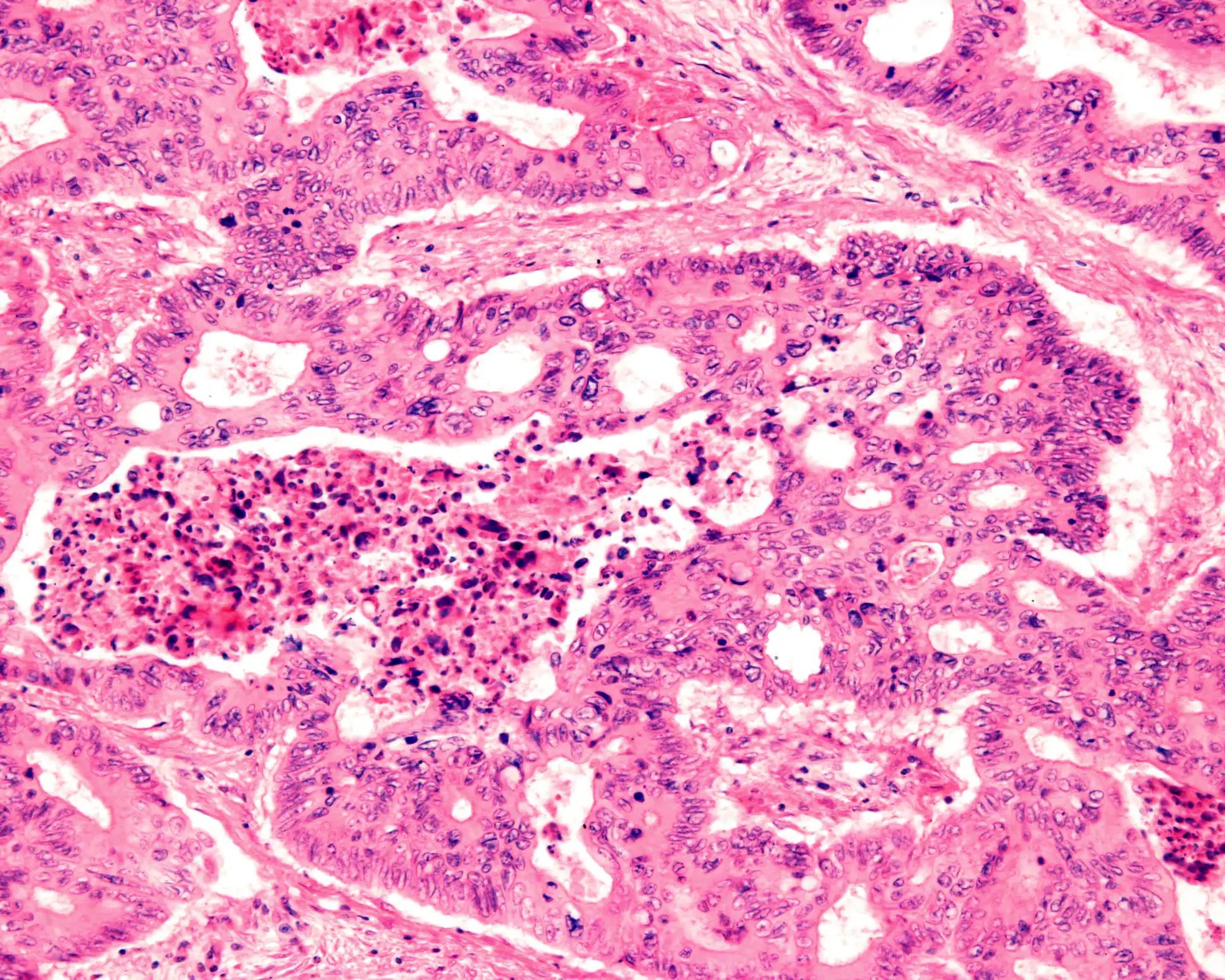KEY TAKEAWAYS
- The study reports the results of the BRUIN trial (NCT03740529) of Phase 1/2, which evaluated the safety and efficacy of pirtobrutinib, a non-covalent BTK inhibitor, in a cohort of RT patients with DLBCL.
- RT is a devastating complication in up to 10% of patients with CLL and is associated with an inferior prognosis.
- Among the 57 RT patients in the study, the ORR was 54% (95% CI, 39-68), and the median duration of response (DoR) was 8.6 months (95% CI, 1.9-NE), with 63% of responses.
- The most frequent treatment-emergent adverse events (TEAEs), regardless of attribution, were fatigue (26%), diarrhea (22%), and discoloration (19%).
- Only 2% of patients discontinued treatment due to a treatment-related adverse event, indicating that pirtobrutinib was well-tolerated in this cohort of heavily pretreated patients.
An inferior prognosis with a median overall survival (OS) of 3-11 months is associated with Richter transformation (RT), which typically manifests as an aggressive type of diffuse large B-cell lymphoma (DLBCL) for which there are no authorized medications. Up to 10% of patients with chronic lymphocytic leukemia (CLL) are thought to encounter this catastrophic consequence. However, this number may climb as more patients experience progression after therapy with Bruton tyrosine kinase inhibitors (BTKi) and BCL-2 inhibitors. Highly selective non-covalent (reversible) BTKi pirtobrutinib inhibits wildtype and C481-mutant BTK with similar low nM potency and features a pharmacological profile allowing sustained BTK inhibition throughout.
Patients with poor prognosis B-cell malignancies have shown encouraging responses to pirtobrutinib. They present the first large cohort of RT pts from the BRUIN research (NCT03740529). Patients with relapsed or refractory B-cell malignancies were eligible for treatment with pirtobrutinib monotherapy in the dose escalation or expansion phase of the multicenter 1/2BRUIN trial. For the first several years, participation was restricted to patients who had already had treatment for RT.
Patients with untreated RT became eligible as of the 10th amendment. The key outcomes were the overall response rate (ORR) and duration of response (DoR) according to Lugano’s 2014 criteria, as determined by investigators. All RT patients from either phase 1 or 2 who had a first response assessment or had terminated treatment were included in the response evaluable cohort. All patients with B-cell malignancies who received at least one dose of pirtobrutinib monotherapy were included in the safety cohort (n=725). The information was gathered using a date cut of January 31, 2022. The median age of the 57 RT pts was 67 (range: 33-86), and 91% (n=52) had previously been treated with RT. Before developing RT, patients had, on average, received two therapies aimed at RT and two at CLL (range: 0-7). (range, 0-13).
Previous RT-directed therapies included anti-CD20 antibody (86%, n=49), chemotherapy (79%, n=45), BCL2 inhibitor (35%, n=20), BTKi (28%, n=16), PI3K inhibitor (12%, n=7), CAR-T (9%, n=5), immunomodulator (5%, n=3), stem cell transplant (4%, n=2), or other systemic therapy (33%, n=19 BTKi (n=34), anti-CD20 antibody (n=34), chemotherapy (n=47), BCL2 inhibitor (n=24), immunomodulator (n=9), PI3K inhibitor (n=5), stem cell transplant (n=4), CAR-T (n=1), or other systemic therapy (n=11) were among the prior CLL-directed therapies. For phase 2, the average first dose was 200 mg once daily, and 98% of patients (56 of 57) were given this amount. The ORR for the 50 response evaluable pts was 54% (95% CI, 39-68), including 5 complete responses and 22 partial responses, in this cohort of patients with primarily highly pretreated RT.
With a median response follow-up time of 5.5 months and 63% of replies censored at the time of data cut, the median DoR was 8.6 months (95% CI, 1.9-NE). Median overall survival was 13.1 months (95% CI, 7.1-NE), with a median follow-up of 9.7 months in the study. Around 6 patients with a median time on therapy of 3.8 months (range: 2.5-11.5 months) decided to stop taking pirtobrutinib voluntarily to undergo treatment to cure their cancer. Fatigue (26%, n=191), diarrhea (22%, n=160), and discoloration (19%, n=138) were the most common TEAEs in the safety cohort of all pirtobrutinib-treated patients with B-cell malignancies. Neutropenia was the most common TEAE at Grade 3 frequency (20%, n=143).
It showed that hypertension (3%, n=20), bleeding (2%, n=16), and atrial fibrillation/flutter (1%, n=7) all had low rates of Grade 3 TEAEs Overall, 15 pts (2%) dropped out owing to an adverse event (AE). Patients who had previously had RT-directed chemoimmunotherapy and covalent BTKi and those who were part of the predominately significantly pretreated RT cohort with a very dismal prognosis showed encouraging early responses to pirtobrutinib. Overall, toxicity from pirtobrutinib was manageable, and discontinuation rates were modest.
Source: https://ash.confex.com/ash/2022/webprogram/Paper157058.html
Clinical Trial: https://clinicaltrials.gov/ct2/show/NCT03734016
William G. Wierda, MD, PhD1, David John Lewis, MBChB, PhD2*, Paolo Ghia, MD, PhD3, Nirav N. Shah, MD4, Catherine C. Coombs, MD5, Chan Yoon Y. Cheah, MD6, Nicole Lamanna, MD7, Joanna M. Rhodes, MD, MSCE8, Marc Hoffmann, MD9, Shuo Ma, MD10, Toby A. Eyre, MBChB, DipMedEd, MRCP, FRCPath, MD11*, Talha Munir, MBBS, MRCP, FRCPath, PhD12*, Manish R. Patel, MD13, Alvaro J. Alencar, MD14, Constantine S. Tam, MD, MBBS15, John F. Seymour, MBBS, PhD, FRACP16, Wojciech Jurczak17, Ewa Lech-Marańda, MD, PhD18*, Lindsey Roeker, MD19, Philip A. Thompson, MBBS1, Paolo B. Abada, MD, PhD20*, Chunxiao Wang, PhD21*, Binoj Nair, PhD20*, Hui Liu, MD, PhD20*, Donald E. Tsai, MD, PhD20* and Anthony R. Mato, MD, MSCE19. Shah, N. (2022).



